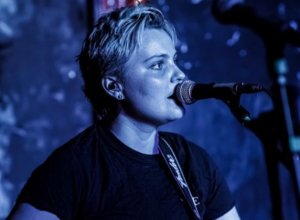Revolutionary Scottish Author Iain Banks Loses Cancer Battle At 59
By Victoria Pavlova in Lifestyle / Showbiz on 10 June 2013
The author lost his battle with cancer at 59.
Author Ian Banks died yesterday at the age of 59, two months after announcing that he had been diagnosed with terminal cancer. The author was best known for works like The Wasp Factory, The Crow Road and Complicity. The tragic announcement was made by his wife, Adele and quoted on a fan webside, Banksophilia: "Iain died in the early hours this morning. His death was calm and without pain."
Banks’ publisher, Little, Brown Book Group said the author was "one of the country's best-loved novelists" for both his mainstream and science fiction books.
"Iain Banks' ability to combine the most fertile of imaginations with his own highly distinctive brand of gothic humour made him unique," it said.
The author still has one final book in the pipeline. The Quarry, is due for release on June 20th. Its aim is to describe the physical and emotional strain of cancer. Following his diagnosis, Banks asked his publisher to move the publication date forward, so that he would be able to see his final book on the shelves. Unfortunately, even the June 20th publication date turned out to be too late. But according to the writer, he wasn’t prompted to write The Quarry by his own illness: "I had no inkling. So it wasn't as though this is a response to the disease or anything, the book had been kind of ready to go," he said in an interview with the BBC’s Kirsty Wark. "And then 10,000 words from the end, as it turned out, I suddenly discovered that I had cancer."
Banks leaves behind a large collection of both literary and science fiction. A number of his fellow authors have also come forward to express their grief over his death. Fellow Scottish author Ken MacLeod paid tribute to Banks, saying he had "left a large gap in the Scottish literary scene as well as the wider speaking English world"
"He brought a wonderful combination of the dark and the light side of life and he explored them both without flinching," he said. "He brought the same degree of craft and skill and commitment to his science fiction as he did to his mainstream fiction and he never drew any distinction in terms of his pride in what he was doing."
Contactmusic
Suggested

Leisure Festival - Dreamland in Margate
On the same day that Glastonbury welcomed back Margate's adopted sons, The Libertines, Margate itself put on it's very own Leisure Festival as it...

Pretty Fierce talk to us about collaborating with Doja Cat, emetophobia, arena tours and staying "true to yourself" [EXCLUSIVE]
Sheffield's very own all girl group Pretty Fierce are still on a high after the recent release of their debut single - 'Ready For Me'.

Will Varley & Jack Valero - The Astor Theatre Deal Live Review
Three nights before the end of his current tour Will Varley returned to his home town of Deal to delight a sold out crowd in The Astor Theatre.

WYSE talks to us about her "form of synaesthesia", collaborating with Radiohead's Thom York and the prospect of touring with a band [EXCLUSIVE]
With only a few days to go before Portsmouth based songstress and producer WYSE releases her new single, 'Belladonna', we caught up with her to find...
Advertisement

Bay Bryan talks to us about being a "wee queer ginger", singing with Laura Marling and being inspired by Matilda [EXCLUSIVE]
Colorado raised, Glasgow educated and Manchester based Bay Bryan is nothing if not a multi-talented, multi-faceted artist performing as both...

Keelan X talks to us about staying true to "your creative vision", collaborating with Giorgio Moroder and being "a yoga nut" [EXCLUSIVE]
Former Marigolds band member Keelan Cunningham has rediscovered his love of music with his new solo project Keelan X.
![Luke De-Sciscio talks to us about having the courage to be yourself, forgiving that which is outside of one's control and following whims [EXCLUSIVE] Luke De-Sciscio talks to us about having the courage to be yourself, forgiving that which is outside of one's control and following whims [EXCLUSIVE]](https://images.contactmusic.com/images/home/homepage/luke-de-sciscio-abof-a.jpg)
Luke De-Sciscio talks to us about having the courage to be yourself, forgiving that which is outside of one's control and following whims [EXCLUSIVE]
Wiltshire singer-songwriter Luke De Sciscio, formally known as Folk Boy, is set to release is latest album - 'The Banquet' via AntiFragile Music on...

Annie Elise talks to us about the challenges a female producer has to face and "going through a year of grief and sickness" [EXCLUSIVE]
Electronic music pioneer and producer Annie Elise says that the release of her first EP - 'Breathe In, Breathe Out' feels "both vulnerable and...
Advertisement
